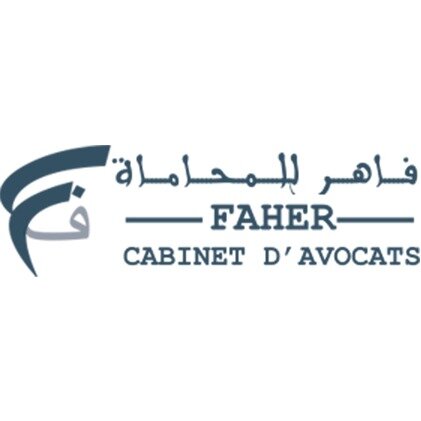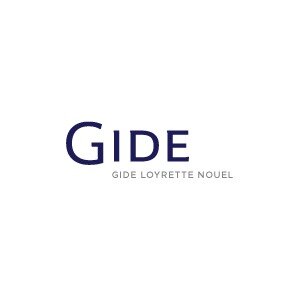Best Art & Cultural Property Law Lawyers in Casablanca
Share your needs with us, get contacted by law firms.
Free. Takes 2 min.
List of the best lawyers in Casablanca, Morocco
About Art & Cultural Property Law in Casablanca, Morocco
Art & Cultural Property Law in Casablanca, Morocco, pertains to the legal framework governing the protection, preservation, and transaction of cultural heritage and artistic works. This field of law addresses issues related to ownership, exportation, importation, and restitution of cultural artifacts and art pieces. Given Casablanca's rich cultural history and its role as a major urban center, the enforcement of these laws ensures the safeguarding of Morocco's cultural legacy while fostering a dynamic art market.
Why You May Need a Lawyer
Individuals and organizations may require legal assistance in Art & Cultural Property Law in the following situations:
- Acquiring or selling art pieces or cultural artifacts.
- Assessing the authenticity and provenance of an art piece.
- Dealing with customs issues when importing or exporting cultural items.
- Engaging in legal disputes over ownership of cultural property.
- Navigating the legal obligations for museums and galleries.
- Handling issues related to illicit trafficking of cultural goods.
- Ensuring compliance with local and international cultural heritage laws.
Local Laws Overview
The legal framework regarding art and cultural property in Casablanca, Morocco, includes several key aspects:
- Moroccan law places high importance on the protection of its cultural heritage, with laws aimed at preventing the illicit export and trafficking of cultural artifacts.
- The Ministry of Culture and Communication oversees the protection and preservation of historic sites and artifacts.
- Art transactions are subject to specific regulations to ensure authenticity and legal ownership.
- The Penal Code imposes severe penalties for violations related to the illegal appropriation and trade of cultural goods.
- International treaties, such as UNESCO conventions, also play a role in shaping local practices and policies.
Frequently Asked Questions
What constitutes cultural property under Moroccan law?
Cultural property includes artifacts, artworks, monuments, and sites that hold historical, artistic, scientific, or cultural significance.
Can I import or export cultural artifacts in Morocco?
The import and export of cultural artifacts are heavily regulated and often require permits. Exporting items of cultural significance without permission is illegal.
How can I verify the authenticity of a piece of art?
Engaging a professional appraiser or lawyer specializing in art law can help verify authenticity and provenance.
What should I do if I inherit a cultural artifact?
Consult with a lawyer to understand any legal obligations concerning ownership and potential obligations under Moroccan cultural heritage laws.
Is there a government body overseeing cultural property laws?
Yes, the Ministry of Culture and Communication is primarily responsible for enforcing cultural property laws in Morocco.
Are there specific laws for art galleries and museums?
Museums and galleries must comply with regulations regarding the acquisition, display, and loan of artworks, ensuring adherence to cultural heritage protection laws.
What actions can be taken against illicit trafficking of cultural items?
Strong legal frameworks and penal sanctions exist to combat illicit trade, and affected parties can pursue legal recourse through the courts.
What are the penalties for violating cultural property laws?
Penalties can include fines, imprisonment, and the forfeiture of the items involved, depending on the severity of the violation.
How can international buyers ensure they comply with local laws?
International buyers should work with local legal experts to navigate the complexities of Moroccan law and secure necessary permissions.
What should an artist know before displaying work in Morocco?
Artists should ensure their works respect local cultural norms and obtain any necessary permits, especially if importing pieces for an exhibition.
Additional Resources
- Ministry of Culture and Communication
- UNESCO Office in Rabat
- National Museums Foundation of Morocco
- Local Bar Associations with specialists in art law
- International Council of Museums (ICOM) - Morocco Branch
Next Steps
If you need legal assistance in Art & Cultural Property Law, consider the following steps:
- Consult with a lawyer specialized in art and cultural property law for expert advice tailored to your needs.
- Gather all relevant documents and information related to your situation.
- Contact local museums or cultural institutions for initial guidance if your issue involves communal cultural heritage.
- Seek recommendations for reputable lawyers from professional organizations or trusted contacts in the art community.
Lawzana helps you find the best lawyers and law firms in Casablanca through a curated and pre-screened list of qualified legal professionals. Our platform offers rankings and detailed profiles of attorneys and law firms, allowing you to compare based on practice areas, including Art & Cultural Property Law, experience, and client feedback.
Each profile includes a description of the firm's areas of practice, client reviews, team members and partners, year of establishment, spoken languages, office locations, contact information, social media presence, and any published articles or resources. Most firms on our platform speak English and are experienced in both local and international legal matters.
Get a quote from top-rated law firms in Casablanca, Morocco — quickly, securely, and without unnecessary hassle.
Disclaimer:
The information provided on this page is for general informational purposes only and does not constitute legal advice. While we strive to ensure the accuracy and relevance of the content, legal information may change over time, and interpretations of the law can vary. You should always consult with a qualified legal professional for advice specific to your situation.
We disclaim all liability for actions taken or not taken based on the content of this page. If you believe any information is incorrect or outdated, please contact us, and we will review and update it where appropriate.














